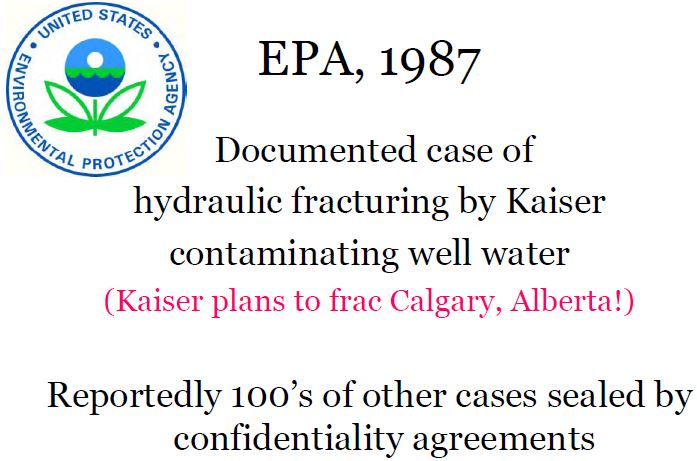WHEN THE PEOPLE SHOUT NO! The Friends of the Fraser Valley and the Five Waves of Petroleum Exploration in the Fraser Valley, British Columbia 1914 – 1994 by Will Koop, August 15, 2022, B.C. Tap Water Alliance
Short version of the report: (Title, Foreword, Dedication, Contents, Introduction, pdf)
Full report: (133 megabytes, pdf)
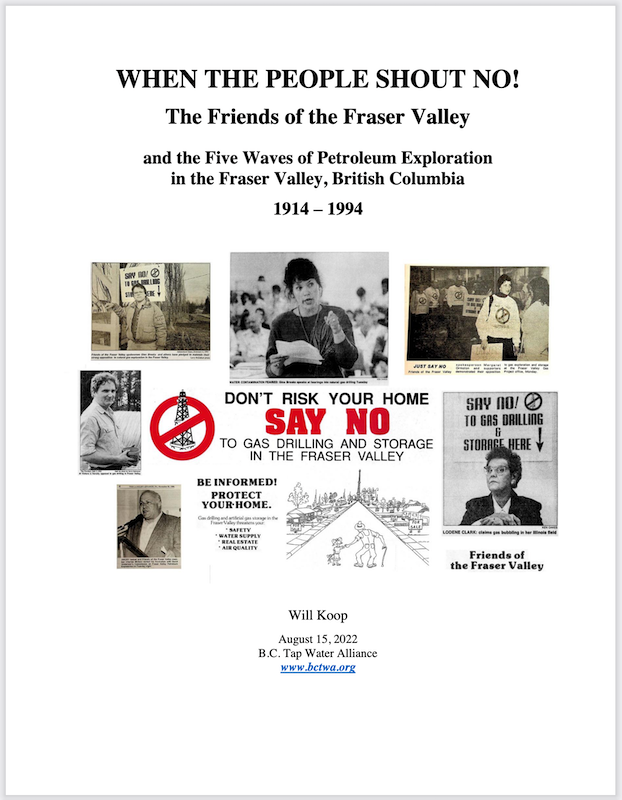
Dedication to Joyce Nelson
This report on petroleum exploration in the Fraser Valley is dedicated to Joyce Nelson, who recently passed away on January 4, 2022.
I first witnessed Joyce speak at the 1993 Take Back the News conference in Vancouver at the former Robson Square Theatre. Just before her presentation, she asked audience participants
that all recording equipment be shut off, in case of legal retribution by her named sources. I reluctantly turned off my, then recently purchased, Sony Hi-8 camcorder. …
Because of the risky nature of her investigative assessments and critiques in publications, news articles and books of corporate empires and representatives, at some point Joyce had to leave British Columbia to settle elsewhere to find a means of income. Years later I tracked her down in Toronto and then maintained contact by telephone and email.
She was an amazing, important and gifted researcher, an articulate writer, a well-grounded, warm and sincere person with a wonderful voice and an alert and probing mind. I enjoyed our conversations that we shared on the plight of our planet, and about this and that. Joyce is greatly missed.
Will Koop,
July 23, 2022.
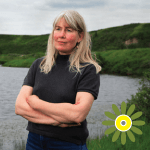
When my lawsuit first went public, Joyce Nelson sent a generous donation and beautiful card, and thereafter sent annual notes of encouragement until she became ill. She also reported on the horrors of frac’ing and my case with courage, truth and integrity.
2011: Fracking the world
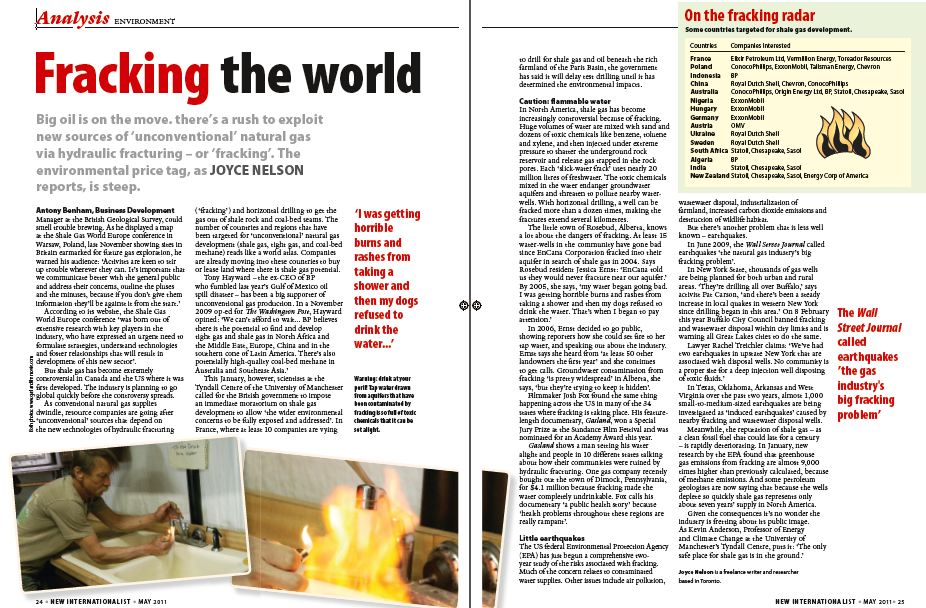
2011: Does Gas Fracking cause Earthquakes?
2010: Fracking – Natural Gas Affects Water Quality
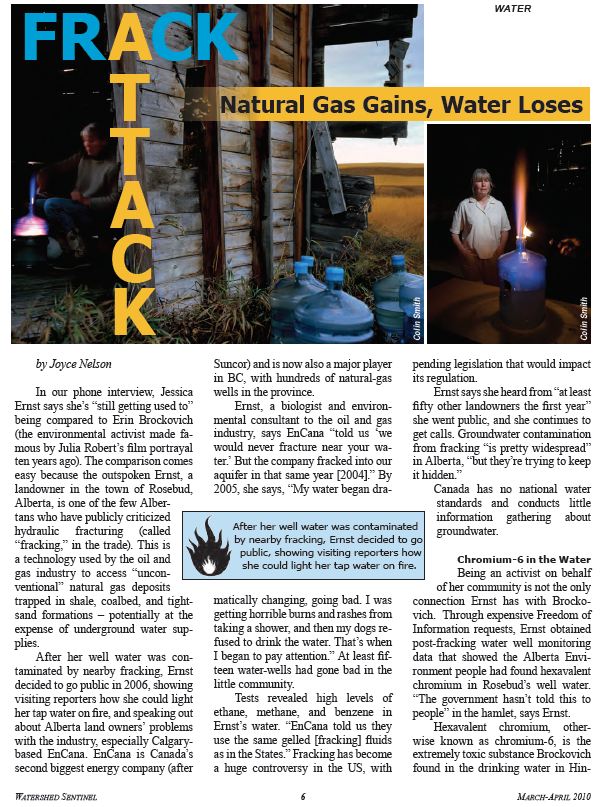
2009: Frack Attack. New, dirty gas drilling method threatens drinking water
A technology used by the oil and gas industry to obtain natural gas is raising major concerns across the United States and is equally suspect for areas being drilled in Western Canada. Called hydraulic fracturing (or “fracking” in the trade), it allows drilling companies to access “unconventional” natural gas deposits trapped in shale, coal-bed, and tight-sand formations – potentially at the expense of underground water supplies.
On August 27, 2009, Reuters reported that the U.S. Environmental Protection Agency (EPA) had found toxic chemical contaminants in drinking water wells near gas-drilling operations in Pavillion, Wyoming, where EnCana has 248 natural gas wells.
Eleven of 39 water-wells tested in Wyoming by the EPA earlier this year showed chemicals that can cause cancer, kidney failure, anaemia, and fertility problems. Among the contaminants in three of the wells was 2-butoxyehanol (2-BE), a highly toxic solvent often used in fracking.
The ongoing EPA investigation is significant because it is the first time the U.S. federal agency has investigated and documented such well-water contamination close to natural gas drilling sites, although, according to research by the U.S. journal ProPublica, in the last few years there have been more than a thousand similar cases documented by courts and local governments across the U.S. …
Canada has no national water standards and collects little information about groundwater. …
….even the industry admits that as much as 70% of the original fracturing fluid volume may remain underground. Fracking fluids and natural gas can both migrate underground from the fracture site. According to Business Week (Nov. 11, 2008), a 2004 EPA study found that “fracturing fluids migrated unpredictably through rock layers in half the cases studied,” and the injected fluids are “likely transported by groundwater.”
… In 2006, when EnCana was fined $266,000 by the state of Colorado for “failure to protect water-bearing formations,” a company spokesman complained to the press that environmentalists had been spreading “misinformation” about fracking and creating a climate of fear about hydraulic fracturing fluids. …
… The precise nature and concentrations of the chemicals in these “proprietary fluids” are not even fully known to government regulatory agencies, though in its 2004 study the EPA found biocides and lubricants that “can cause kidney, liver, heart, blood, and brain damage through prolonged or repeated exposure.”
By examining drillers’ patent applications and government worker health and safety records, some environmentalists and regulators in the U.S. have been able to piece together a list of some of the fracking fluid ingredients. These include potentially toxic substances such as diesel fuel (which contains benzene, ethylbenzene, toluene, xylene, and naphthalene), polycyclic aromatic hydrocarbons, methanol, formaldehyde, ethylene glycol, glycol ethers, hydrochloric acid, and sodium hydroxide. According to Business Week, “Of more than 300 chemicals thought to be in use by drillers, more than 60 are listed as hazardous.” …
….industry also claims that “disclosure would only make people nervous,” Business Week reported: “’We have a proven process in place to protect groundwater,’ says Doug Hock, a spokesman for EnCana… ‘Information about the chemicals used in fracturing is complex and could unnecessarily frighten the public,’ he adds.”
***
I still can’t believe Joyce has died. I miss her fierce research and writing; I will miss her gentle notes and kind support (that to my surprise kept coming even after my ex lead lawyer Murray Klippenstein killed my lawsuit).
![]()
The following was retrieved from Joyce Nelson’s obituary in the Globe and Mail.
JOYCE DOROTHY NELSON. February 24, 1945 – January 4, 2022. Joyce passed away at Michael Garron Hospital in Toronto after a brief illness. She will be greatly missed by siblings and extended family members in the USA, and many friends and colleagues across Canada. Joyce was born in the USA but had lived in Canada for many decades. Joyce was an environmental activist, cultural critic, investigative journalist and poet who produced a volume of work that can be accessed at this link https://g.co/kgs/k8YUbc. Joyce was also an accomplished visual artist and a member of the Beach Guild of Fine Art https://www.beachguildoffineart.com/. At Joyce’s request her body has been donated to
medical research. There will not be a memorial at this time, but donations to charities in Ontario supporting refugees or homeless people would be in line with Joyce’s wishes. Joyce’s brave heart will stay present with us through her work and our memories.
The following was retrieved from Joyce Nelson’s website.
Joyce Nelson is an award-winning freelance writer/researcher whose seventh book was published in April 2018. Entitled Bypassing Dystopia: Hope-filled Challenges to Corporate Rule, the book can be ordered from Watershed Sentinel Books now.
Bypassing Dystopia is the sequel to Beyond Banksters: Resisting the New Feudalism, which was published in November 2016 and is now in its fourth printing. Beyond Banksters can also be ordered from Watershed Sentinel. …
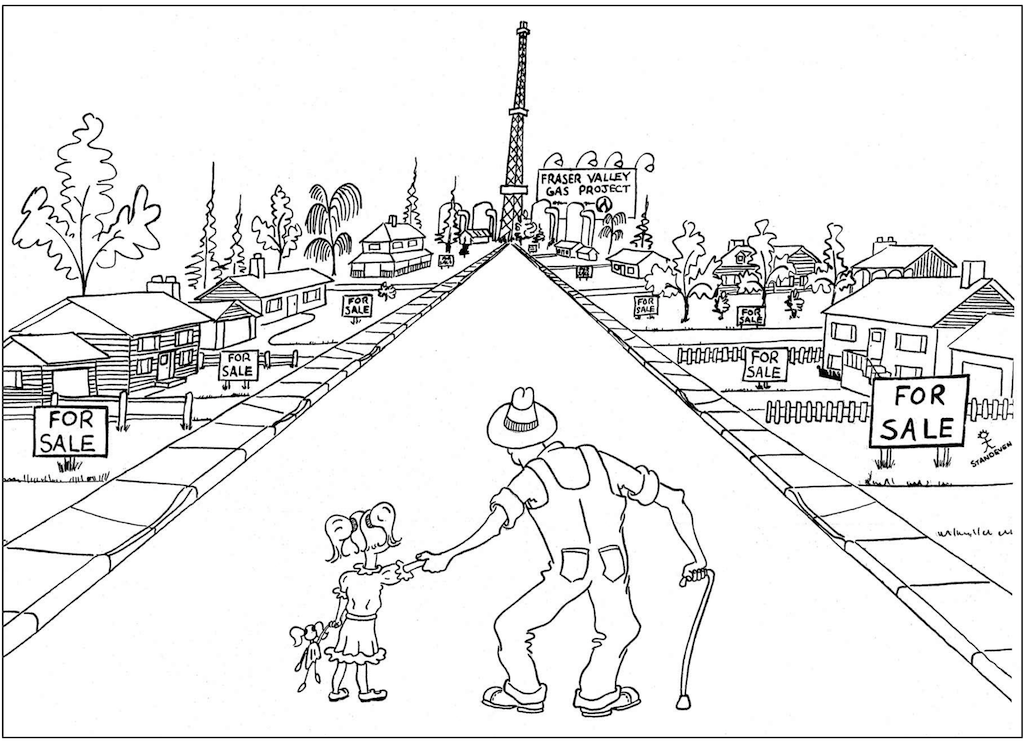
When the People Shout No! Press Release by Will Koop, August 15, 2022, B.C. Tap Water Alliance B.C. Tap Water Alliance Coordinator Will Koop has published a new, major on-line report (at www.bctwa.org), When the People Shout No! – The Friends of the Fraser Valley and the Five Waves of Petroleum Exploration in the Fraser Valley, 1914-1994. Over a year in the making, the self-financed report investigates the amazing story of how citizens in southwest British Columbia’s Fraser Valley and Lower Mainland organized to oppose petroleum exploration for oil and gas and development of underground gas storage during the ‘fifth wave’ of exploration (1988-1994). Faced with government’s approval for controversial licensed petroleum operations and developments in populated areas, citizenry fought to protect their families, their homes and farms, their groundwater, their lands and animals, and their air. They did so with persistence, perseverance, and creativity, never afraid to take on the powers that be, including the government’s special 1990 Commission of Inquiry. Their battle is not the only story featured in this ambitious report. It also narrates the historical events and contexts of the “five waves” of petroleum exploration in the Fraser Valley, on Vancouver Island, and in the Gulf Islands that took place over an eighty-year period, 1914 to 1994, events long since forgotten. Behind the endeavors of the final three waves (1977-1994) was the provincial government’s and industry’s hunt for an underground gas storage facility, stumped at each attempt. Millions and millions of dollars from corporations and companies that financed and speculated on cumulative petroleum schemes and operations during the “five waves” – sometimes including elaborate public relations endeavors – achieved the same end results – they all came up dry! -30- Short version of the report: (Title, Foreword, Dedication, Contents, Introduction, pdf) Full report: (133 megabytes, pdf)

Refer also to:
2014: The Power of NO! HUGE VICTORY BY THE PEOPLE, BUSINESSES, COMMUNITY AND CITY OF LETHBRIDGE: Goldenkey withdraws from Penny Project ![]() Can you imagine a community in Alberta saying “No!” to oil & gas?
Can you imagine a community in Alberta saying “No!” to oil & gas?![]()
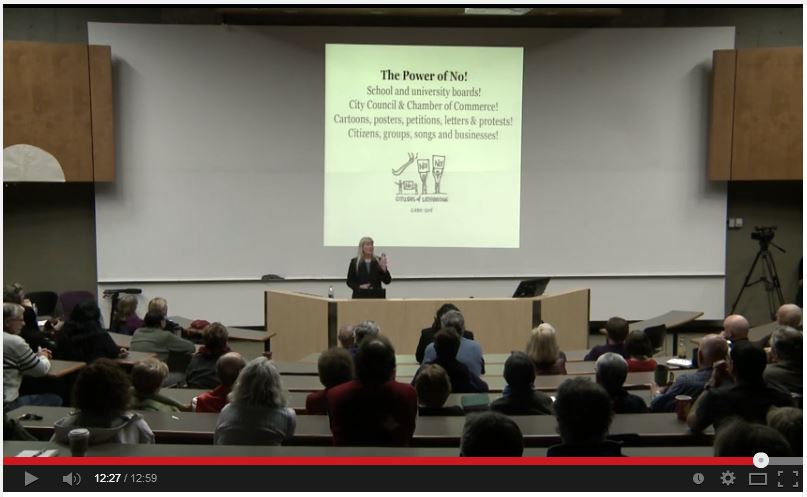
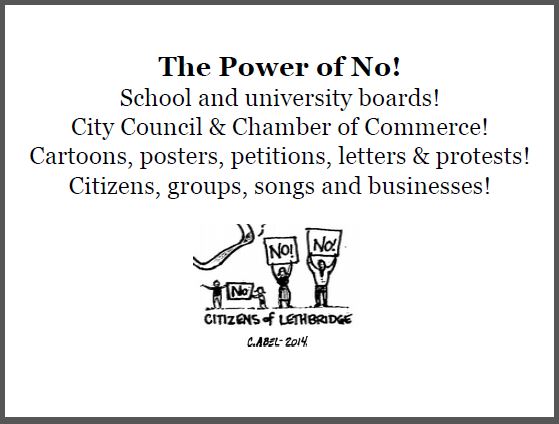
![]() Imagine even Calgary – oil and gas capital of Canada – vehemently saying “NO!”
Imagine even Calgary – oil and gas capital of Canada – vehemently saying “NO!”![]()
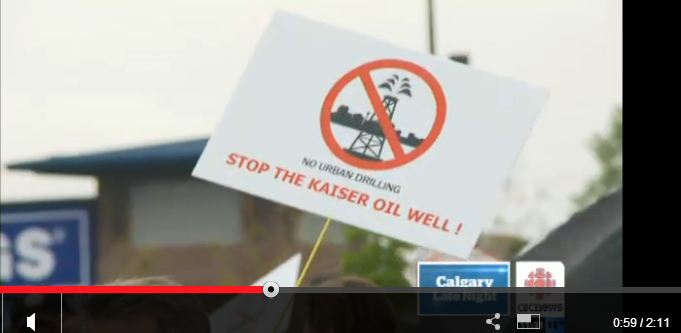
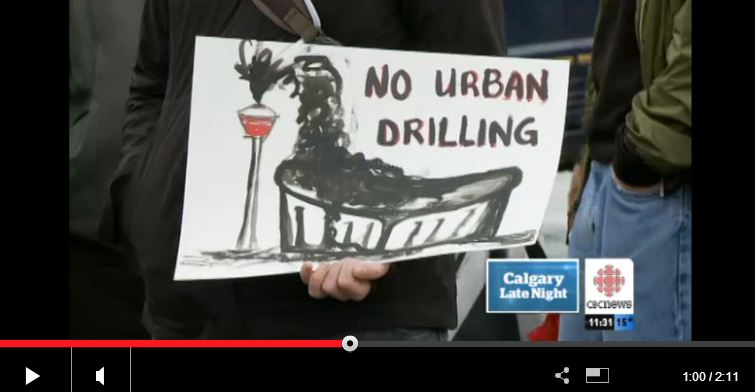
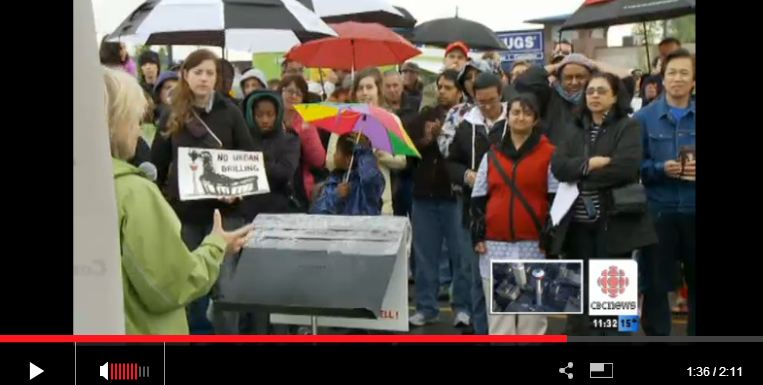
2012: Kaiser Oil Well to be frac’d in Calgary near sour gas, letter to Premier Alison Redford
